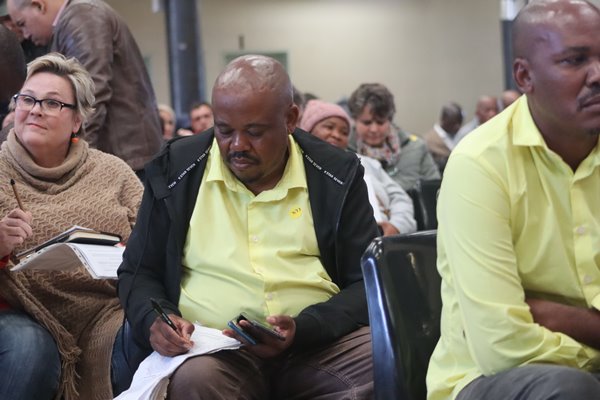MANAGEMENT OF LEARNER PREGNANCY PROVOKES CONTRASTING VIEWS ON BELA BILL IN KIMBERLEY
Issued by the South African parliamentary communication services
The Portfolio Committee on Basic Education concluded the Northern Cape leg of the public consultation process on the Basic Education Laws Amendment Bill in Kimberley yesterday, with residents of the greater Frances Baard District Municipality voicing contrasting views on the management of learners’ pregnancy as proposed by clause 41 of the Bill.
The committee has now completed public hearings in eight provinces. It is satisfied with the quality of inputs it received thus far. It is of the view that the principles of participatory democracy were maintained in all the provinces it conducted public hearings on the Bill.
The Bill received mixed views from residents in Kimberley, particularly on clauses 37 and 41 of the Bill. Those against the Bill believed that it denies parents their right to make decisions about their pregnant children, something they believe is their constitutional and divine right. Also, some believe that teachers will be allowed by the Bill to keep the details of the pregnancy of learners secret from their parents, although a pregnant learner needs support from her family.
Those in support of the Bill believed that the primary education system is facing a severe challenge regarding learner pregnancy. Clause 41 seeks to legislate learner pregnancy in line with the existing legislation per the Bill of Rights, which stipulates that no one should be discriminated against. They underscored that this clause is necessary to close gaps in managing learner pregnancy.
Furthermore, they argued that there are disparities in clause 37 of the Bill. Those in support of the Bill suggested that the regulation of home-schooling is necessary to ensure adherence to specific standards. Also, participants highlighted that the fear around home-schooling was misplaced because, according to them, the clause did not do away with home-schooling but advocated for registration because the government is responsible for knowing if children have access to quality education.
Those who rejected the Bill raised concerns that the Bill will force the Curriculum Assessment Policy Statements assessment standards on home-schooling, which ends the system’s flexibility. Parents within the home-schooling system urged the department to go back to the drawing board to consult extensively in the home-schooling environment and home-school organisation. They also called for international benchmarking against home-schooling systems abroad to ensure the delivery of appropriate legislation.
During the public hearings, some teachers cautioned against clause 2 (c) because the clause has an inherent risk of undermining the rights of employees to participate in protected strike action. They argued that good criminal conduct and violent protest laws exist, and the Bill should recognize that.
Meanwhile, the participants were unanimous in rejecting clause 8 of the Bill that deals with liquor possession, consumption, or sale on school premises. The committee will conduct public hearings in the coming weekend on the Bill in the Eastern Cape to conclude the nationwide public participation process.


Comments are closed.